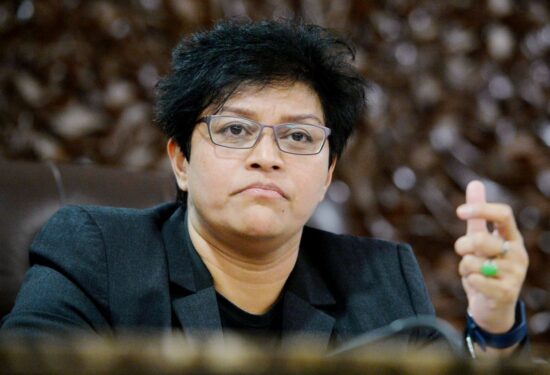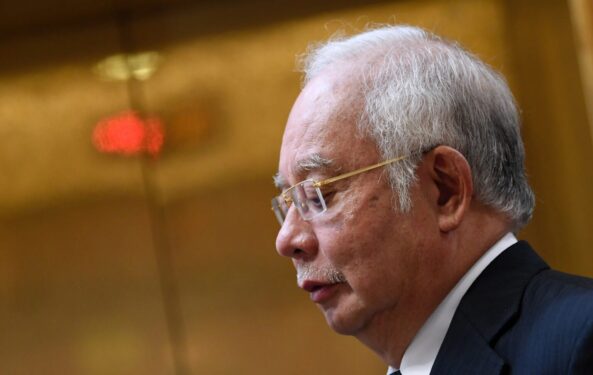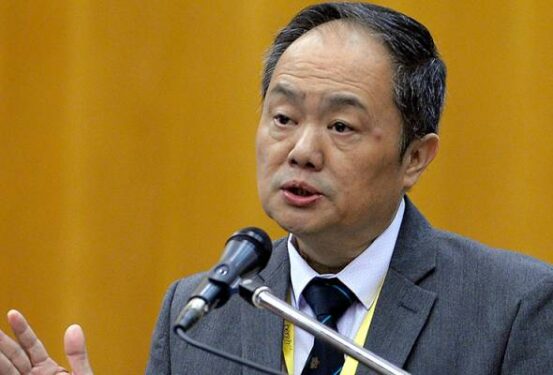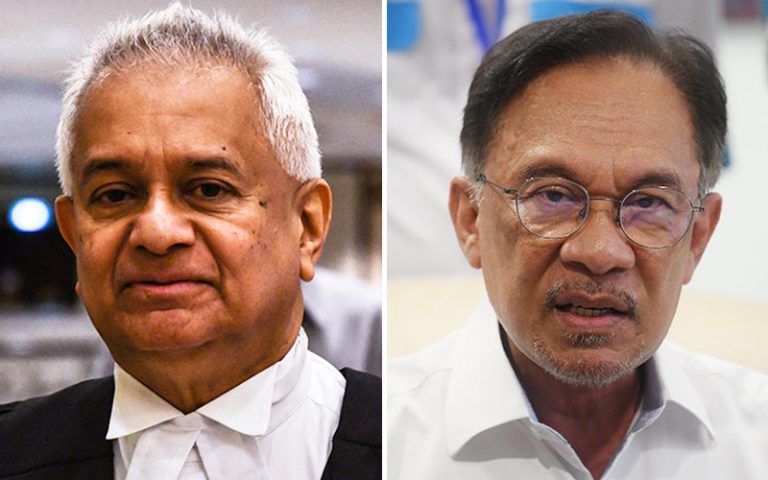UMNO lawmaker Datuk Seri Azalina Othman Said, under fire from Government, opposition and civil society leaders over her recent remarks about who should be the attorney-general (AG), said her critics have “missed the point”.
In particular, the Pengerang MP singled out the Coalition of Free and Fair Elections (Bersih 2.0) and its chairman Thomas Fann, who reportedly criticised Azalina for “changing her stand” on non-interference in the judiciary during a recent special UMNO briefing.
Fann also noted that Azalina had previously wished to separate the roles of the AG as legal adviser to the Government and his concurrent function as the public prosecutor, following the former de facto law minister’s reported call for the prime minister to appoint the AG from among orang dia (his people) to “make matters easier”.
In response, Azalina said her reported remark had “nothing to do” with her “dearly-held” stand on the separation of powers between the judiciary, executive and legislature, as well as her view that the AG and public prosecutor must be separate roles.

“A former law practitioner since 1990 and a lawmaker since 2004, I would be the last to condone any intervention of the judiciary by the executive or legislature,” she said in a statement last night (Aug 29).
“In my speech and thoughts, I merely held dear to the maxim of ‘innocent until proven guilty’ as a basic rule of natural justice.”
Addressing the “elephant in the room”, Azalina clarified that while she said the recent sentencing of Datuk Seri Najib Razak would “not be the last” among UMNO leaders and blamed this on current AG Tan Sri Idrus Harus, she never asked for Najib to be freed or for his remaining charges to be dropped.
The “crux” of her speech on Saturday (Aug 27), she explained, was on the legal rights of an individual to defend themselves in court, appeal their case and adduce new evidence, following Najib’s final appeal in the SRC International corruption case where the Federal Court rejected his lead counsel’s request to discharge himself or the defence’s fresh evidence bid.
“Let’s not forget that the prosecution represents the Government, and therefore YB Pekan’s (Najib) appeal is technically objected to by the Government,” she added. “The AG is the counsel to the Government and, therefore, is the only person who can support any application (to object).”
“Guilty until proven innocent?”
She asked if Bersih has a different legal maxim for UMNO/Barisan Nasional (BN) politicians who are charged in court – i.e. “guilty until proven innocent” – instead of adhering to the principle that every latitude must be given to an accused person to defend their case and themselves.

She also noted that PKR president Datuk Seri Anwar Ibrahim received a royal pardon over his sodomy conviction and was released seven days after Pakatan Harapan (Pakatan) secured victory during the 14th General Elections (GE14).
Pakatan had also appointed a new attorney-general (AG), Tan Sri Tommy Thomas, Azalina noted, and asked Bersih if it did not consider Tommy to be orang Pakatan.
“Did you just move the goalpost? Pakatan’s prime minister changed the AG and so did Perikatan Nasional’s prime minister, but a prime minister from UMNO/Barisan Nasional (BN) cannot change or replace the AG? Double standards, I reckon,” she said.
Azalina also clarified her position on the separation of the roles of the AG and the public prosecutor, which she said was two-pronged.
For her, the political or ministerial-level AG should sit in the Cabinet and attend to and be accountable to Parliament, thus being answerable to all lawmakers on every decision that he makes and advice he gives to the Government.
On the other hand, the public prosecutor should be a professional, taking a page from the practice in the UK where a senior career prosecutor from the rank and file of the prosecution authority, and not a political appointee, holds the position.
“Perhaps you missed the point Fann: when I said orang dia, it means putting the political/ministerial AG in Parliament as I have repeatedly said in the past, especially during the imposition of emergency during the COVID-19 lockdown,” she said.

She added that when the late Tan Sri Abdul Kadir Yusof and Tan Sri Hamzah Abu Samah held the AG posts in the past (despite being well-known UMNO politicians) it did not cause any “hysteria” as opposed to now.
“Expedited reforms”
“Wouldn’t having a political/ministerial AG appointed by the prime minister mean increased transparency and accountability of the executive?” she asked. “Wouldn’t having an accountable political/ministerial AG in Parliament expedite the reform agenda that we want?”
She noted that many laws can be amended quickly to address issues on human rights, citizenship and electoral law reforms, including constitutional amendments, if these decisions were not contingent on an AG who is not an MP.
She also said “why else” would she be part of Bersih’s effort in the multi-party reform caucus, and urged the non-governmental organisation (NGO) not to “blemish” the larger purpose of the caucus with a short speech made at a political gathering.
She further asked if Bersih was “jumping the gun” and if they did not know what they were talking about in demanding the split in the role of AG and public prosecutor as part of the reform agenda.
“My question to you is if the reform caucus succeeds in bringing reform to separate the AG post, and then the prime minister decides to appoint a political/ministerial AG in Parliament from the ruling party, would Bersih then object to this decision? Especially if the appointment carries UMNO’s DNA?”
She added: “Sadly, everyone thinks that a new AG appointee will be manipulated to drop criminal charges against its members or be pardoned of all charges. This is not my intention, nor the intention of the (UMNO) special meeting held last Saturday. Watch the speeches again for verification, please.” – Aug 30, 2022
Main photo credit: FMT









